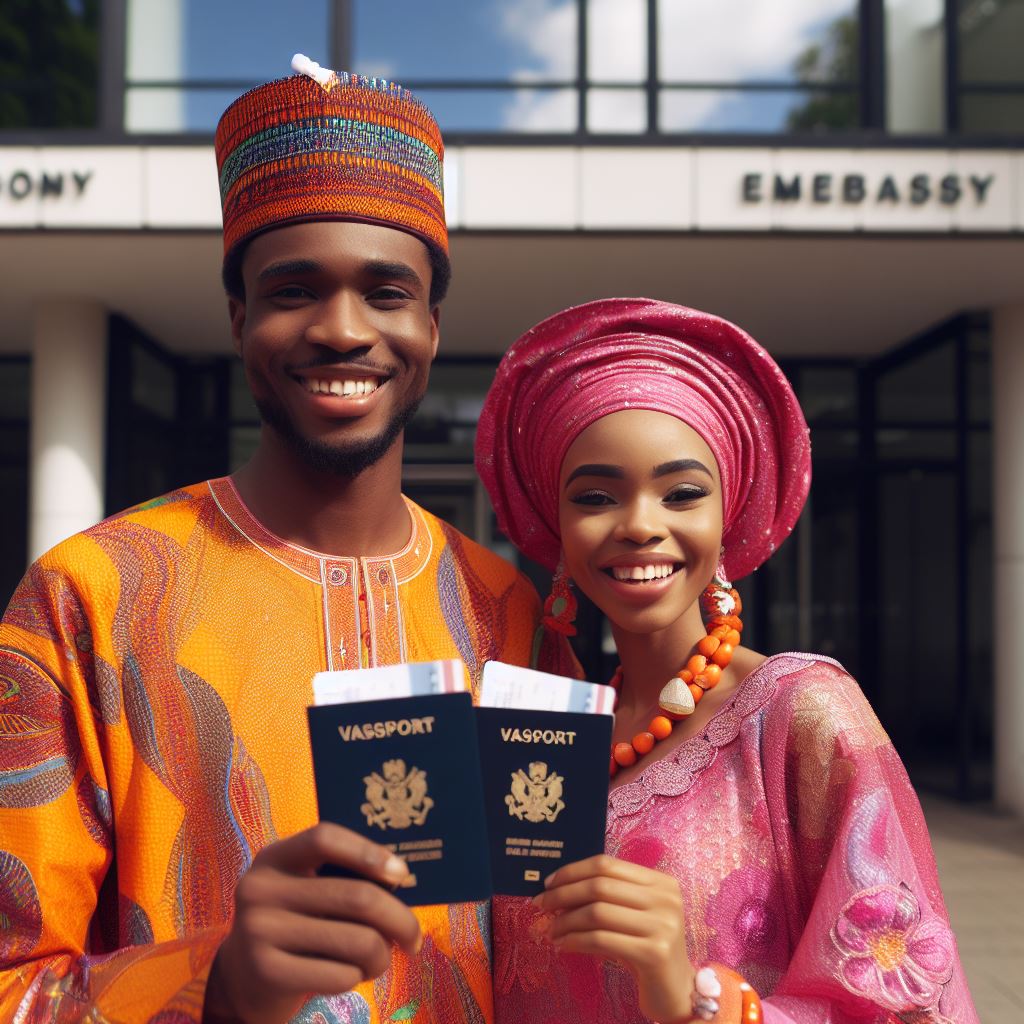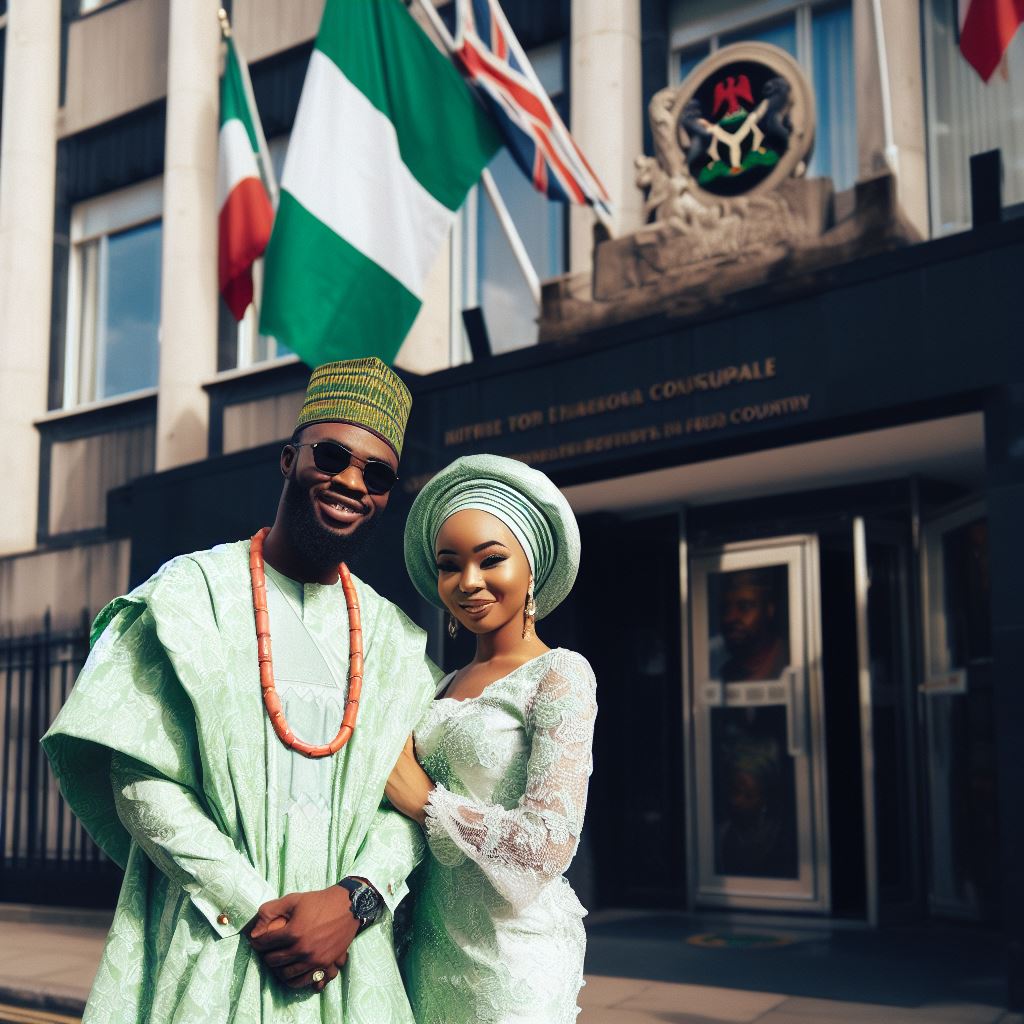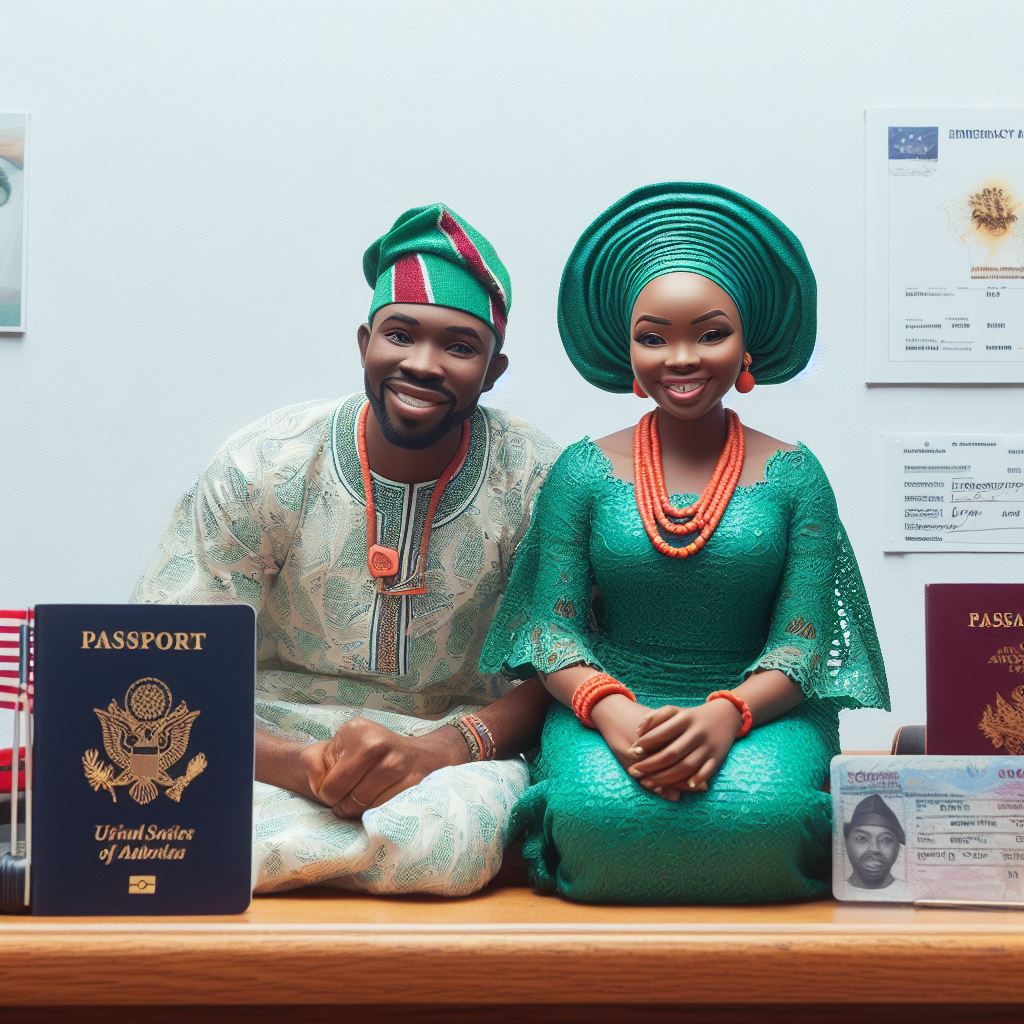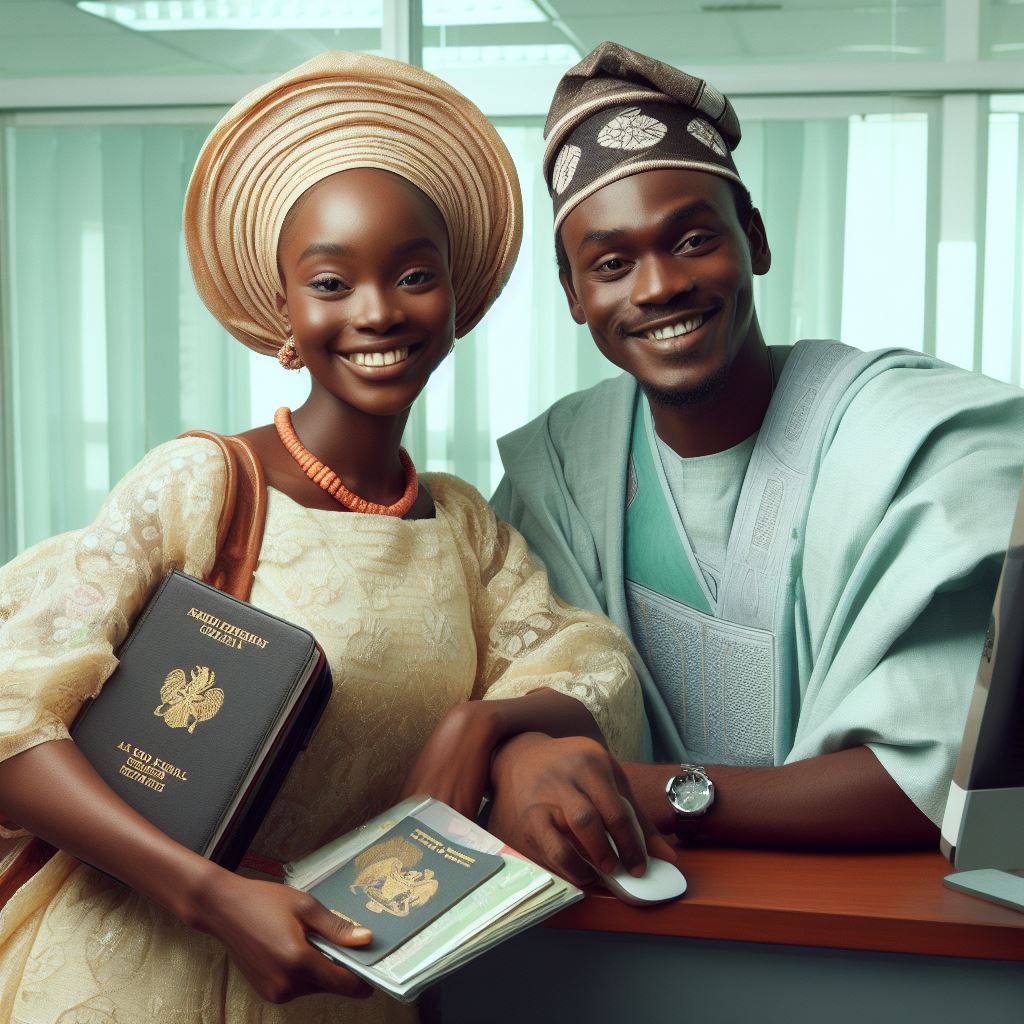Introduction
Let’s explore potential pitfalls: Citizenship through marriage in Nigeria.
Citizenship through marriage in Nigeria is a process that allows foreign spouses to attain Nigerian citizenship.
Understanding the potential pitfalls of this process is crucial for a successful application.
Citizenship through marriage in Nigeria is regulated by the Nigerian Citizenship Act, which grants foreign spouses the opportunity to acquire Nigerian citizenship.
This is done through a process that involves several requirements and procedures.
Understanding the potential pitfalls of obtaining citizenship through marriage in Nigeria is essential to avoid complications and ensure a smooth application process.
These pitfalls can include legal challenges, documentation issues, and cultural barriers.
Legal challenges may arise due to the complexity of Nigerian immigration laws and regulations.
It is important to have a thorough understanding of these laws to navigate through the process successfully.
Documentation issues can also pose significant challenges.
Accurate and complete documentation, such as marriage certificates and proof of residency, is essential for a successful application.
Failure to provide the required documents can lead to delays or even denial of citizenship.
Cultural barriers can also hinder the process.
Nigerian society values traditional customs and practices, and foreign spouses may need to navigate through cultural expectations and norms to establish their eligibility for citizenship.
In short, acquiring citizenship through marriage in Nigeria requires a comprehensive understanding of potential pitfalls.
By being aware of legal challenges, documentation issues, and cultural barriers, applicants can ensure a smooth and successful application process.
Lack of Legal Protections
One of the potential pitfalls of citizenship through marriage in Nigeria is the lack of legal protections.
This lack of a clear legal framework presents several challenges for couples looking to acquire citizenship through marriage.
Absence of clear legal framework for citizenship through marriage
One major issue is the absence of a clear legal framework that specifically addresses the process of acquiring citizenship through marriage.
Unlike some other countries, Nigeria does not have a comprehensive set of laws and regulations outlining the requirements and procedures for acquiring citizenship through marriage.
Without a clear legal framework, couples may face uncertainty and confusion, as there are no explicit guidelines to follow.
This lack of clarity can lead to delays, rejections, and frustration during the application process.
Difficulty in obtaining necessary documentation for the process
Another challenge faced by couples seeking citizenship through marriage in Nigeria is the difficulty in obtaining the necessary documentation.
The process typically requires providing proof of marriage, such as a marriage certificate, along with other supporting documents.
However, obtaining these documents can be a complex and time-consuming task.
Issues may arise if the couple got married in a different country, as they would need to have their marriage certificate authenticated and translated, which can be a lengthy and expensive process.
Additionally, some couples may struggle to obtain the required documentation due to bureaucratic hurdles, inefficient processes, or lack of awareness regarding the specific requirements.
These challenges can significantly slow down the citizenship application process.
Inconsistencies and ambiguity in the interpretation of laws
The interpretation of laws relating to citizenship through marriage in Nigeria can be inconsistent and ambiguous.
This lack of clarity can lead to confusion and differing outcomes for couples seeking citizenship.
The lack of clear guidelines and explicit criteria for eligibility leave room for interpretation, which can vary across different government agencies or even among individual officers.
This inconsistency in the interpretation of laws can result in unequal treatment and unfair rejections for some couples.
Furthermore, the ambiguity in the interpretation of laws can also lead to confusion and misunderstandings, both for the couples and the officials involved in the citizenship application process.
This can further complicate an already challenging process and cause unnecessary delays or complications.
In fact, the lack of legal protections associated with citizenship through marriage in Nigeria presents several potential pitfalls.
The absence of a clear legal framework, difficulty in obtaining necessary documentation, and inconsistencies in the interpretation of laws can make the process complex and frustrating for couples seeking citizenship through marriage.
Fraudulent Marriages
Explanation of the prevalence of fraudulent marriages in Nigeria
Fraudulent marriages are common in Nigeria due to the desire to obtain citizenship.
Some people enter into marriages solely for the purpose of gaining Nigerian citizenship.
The lucrative benefits of citizenship drive individuals to engage in fraudulent marriages.
Corruption and lax regulations in the country’s immigration system contribute to the prevalence of such marriages.
Consequences and risks associated with engaging in a fraudulent marriage
Engaging in a fraudulent marriage puts both parties at significant legal and personal risks.
If discovered, both the Nigerian citizen and the foreign spouse can face severe legal consequences.
Citizenship obtained through fraudulent marriages can be revoked, leading to deportation.
Foreign spouses may also be blacklisted, making it difficult for them to enter the country in the future.
Fraudulent marriages can lead to emotional and financial exploitation of the Nigerian citizen.
The genuine intentions of individuals seeking marriage can be disregarded due to the prevalence of fraud.
Methods to identify and avoid fraudulent marriage schemes
- Thoroughly vet potential partners to ensure the authenticity of their intentions.
- Verify personal information, background, and reputation of the foreign spouse before entering marriage.
- Ensure compatibility, mutual respect, and genuine affection in the relationship.
- Consult with legal experts and officials to understand the legal implications of marriage and immigration.
- Report any suspicious activities or individuals engaged in fraudulent marriage schemes to authorities.
- Stay informed about the latest changes and updates in immigration and marriage laws.
By taking these precautionary measures, individuals can reduce the risks associated with fraudulent marriages and protect their own interests and the integrity of the institution of marriage in Nigeria.
Read: True Stories: Journeys to Nigerian Citizenship by Marriage
Cultural Challenges
Cultural differences that may arise in mixed marriages
- Mixed marriages can bring about clashes in traditions, customs, and values.
- Differences in language and communication styles can lead to misunderstandings.
- Varied religious beliefs may pose challenges in terms of practices and celebrations.
Potential conflicts with traditional gender roles and family dynamics
- Traditional gender roles may clash with more egalitarian views of marriage.
- Expectations regarding household responsibilities and childcare can create tension.
- Family dynamics may be disrupted if in-laws have different expectations and traditions.
Strategies for navigating cultural challenges within a marriage
- Open and respectful communication is key to understanding each other’s cultural backgrounds.
- Building empathy and actively seeking to learn about the other person’s culture can foster mutual understanding.
- Flexibility and compromise are vital in finding common ground and resolving conflicts.
- Seeking support from multicultural resources or counseling can provide guidance and advice.
- Engaging in joint activities that celebrate both cultures can help promote a sense of unity.
Successfully navigating cultural challenges in a mixed marriage requires patience, understanding, and a genuine willingness to embrace differences.
It is essential to recognize that cultural clashes are normal and can even enrich the relationship if handled with respect and open-mindedness.
Read: Busting Myths: Nigerian Marriage and Citizenship Facts

Economic Pressures
Financial motivations that may drive some individuals to marry for citizenship
Financial gain can be a significant driving factor for individuals seeking citizenship through marriage.
Economic pressures, such as poverty or lack of opportunities, may push individuals to consider this option.
Some may seek financial stability or better job prospects by marrying a citizen of another country.
Desperation to escape economic hardships may lead individuals to exploit marriage as a means to an end.
Implications of economic pressures on the stability of a marital relationship
- Marrying solely for economic benefits can strain the foundation of the relationship.
- Financial motives may overshadow genuine affection, leading to a lack of emotional connection.
- Unequal power dynamics may emerge if one partner holds the economic advantage, impacting marital harmony.
- Economic pressures can introduce conflicts and priorities centered around financial stability rather than love and compatibility.
Ways to address and manage economic pressures within a marriage
- Open and honest communication about financial expectations is crucial to creating a stable foundation.
- Couples should develop shared financial goals and engage in transparent financial planning.
- Seeking professional financial advice can help couples navigate economic pressures and establish stability.
- Regularly reassessing financial situations and adjusting plans accordingly can alleviate some economic stress.
- Promoting economic empowerment and self-sufficiency for both partners can reduce reliance on marriage for financial gain.
- Encouraging supportive networks and community resources can provide alternative avenues for economic assistance.
Financial motivations that may drive some individuals to marry for citizenship
Marriage should ideally be built on genuine love and mutual respect, rather than financial gain.
However, economic pressures can complicate this ideal and drive some individuals to seek citizenship through marriage.
Implications of economic pressures on the stability of a marital relationship
Understanding the financial motivations behind such decisions is crucial in addressing the implications it may have on the stability of a marital relationship.
Financial gain as a primary motivation for marriage can strain the emotional connection between partners.
Love and affection may take a back seat when economic pressures become the primary focus.
This dynamic can create an imbalance in power dynamics, potentially leading to resentments and conflicts within the relationship.
Ways to address and manage economic pressures within a marriage
To mitigate these challenges, open and honest communication becomes vital.
Couples should discuss their financial expectations and actively develop shared financial goals.
Establishing a transparent financial plan can help manage economic pressures and avoid misunderstandings.
Seeking professional financial advice can provide valuable guidance in navigating these challenges.
Experts can assist in finding solutions that foster financial stability within the marriage.
Regular assessments of the financial situation and adjustments to plans can help alleviate stress and prevent long-term conflicts.
Promoting economic empowerment and self-sufficiency for both partners can also reduce the reliance on marriage as a means to financial gain.
Encouraging education, career development, and supporting each other’s ambitions can create a more balanced and sustainable relationship.
Additionally, developing a supportive network and utilizing community resources can offer alternative avenues for economic assistance.
Relying solely on marriage for financial stability puts immense pressure on the relationship. Utilizing other available resources can alleviate some of these burdens.
In essence, while economic pressures can drive individuals to marry for citizenship, it is essential to recognize and address the implications this may have on the stability of a marital relationship.
Open communication, shared financial planning, seeking professional advice, promoting empowerment, and utilizing community resources are some ways to manage these pressures.
Building a marriage on genuine love and mutual respect should remain the primary focus, rather than relying solely on economic motives.
Read: The Legal Implications of Marrying for Citizenship
Impact on Personal Relationships and Emotional Well-being
Obtaining citizenship through marriage in Nigeria is not just a legal process, but also a journey that can impact personal relationships and emotional well-being.
It is crucial to acknowledge and address the potential pitfalls that individuals may face in this aspect.
The strain that citizenship through marriage can put on personal relationships
The process of seeking citizenship through marriage can put a significant strain on personal relationships.
Couples often face challenges in maintaining a strong bond while navigating bureaucratic procedures and legal requirements.
Being married solely for the purpose of gaining citizenship may lead to a lack of trust and a sense of being used in the relationship.
Partners may develop feelings of resentment and disillusionment, which can ultimately lead to strained relationships or even divorce.
Emotional toll of navigating complex legal processes and potential rejection
Apart from relationship strain, the emotional toll of navigating complex legal processes and the potential for rejection can be overwhelming.
The uncertainty and anxiety experienced throughout the process can take a toll on one’s mental well-being.
Many individuals going through this process may experience feelings of frustration, fear, and stress due to the constant uncertainty of their citizenship status.
The fear of potential rejection adds another layer of emotional burden, which can lead to feelings of inadequacy and self-doubt.
Suggested coping mechanisms and support systems for individuals going through the process
It is essential for individuals going through the process of obtaining citizenship through marriage to have coping mechanisms and support systems to navigate these challenges effectively.
- Open and honest communication: Couples should maintain open lines of communication and discuss their concerns and fears throughout the process. Sharing emotions and thoughts can help alleviate tension and strengthen the relationship.
- Seek professional guidance: Consulting with immigration lawyers or experts who specialize in citizenship processes can provide clarity and guidance through the complex legal procedures. Their expertise can help in understanding requirements, deadlines, and potential challenges, reducing the emotional burden.
- Emotional support networks: Building a support system is essential. Seeking emotional support from friends, family, or support groups who have gone through similar experiences can help individuals navigate the emotional challenges more effectively.
- Self-care and stress management: Prioritizing self-care activities such as exercise, mindfulness, and relaxation techniques can help individuals manage stress and maintain emotional well-being throughout the process. Seeking professional therapy or counseling services can also be beneficial.
- Focus on the relationship beyond citizenship: It is crucial for couples to remember the reasons they got married in the first place and to focus on building a strong relationship beyond the citizenship goal. Engaging in activities that strengthen their bond can help maintain a healthy connection.
In brief, the pursuit of citizenship through marriage in Nigeria can have a significant impact on personal relationships and emotional well-being.
The strain it puts on relationships and the emotional toll of navigating complex legal processes can be challenging.
However, with open communication, professional guidance, and strong support systems, individuals can effectively cope with these challenges and ensure the well-being of their relationships and themselves throughout the process.
Read: Marriage to a Nigerian: Steps to Secure Citizenship
Conclusion
We highlighted critical pitfalls, inadequate documentation, fraudulent unions, and insufficient financial support.
Being informed and cautious is paramount; ignorance may lead to legal entanglements and emotional distress.
Seek legal counsel. Experts ensure proper documentation, reducing chances of pitfalls.
Their guidance is invaluable.
Remember, your journey to Nigerian citizenship through marriage can be smooth with due diligence and professional guidance.




